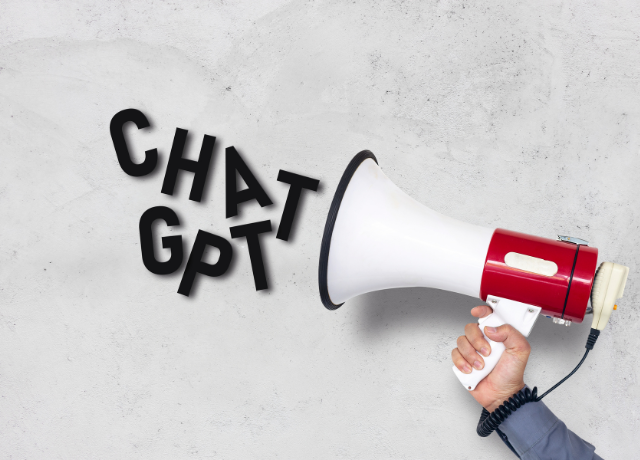Are AI & ChatGPT Assets or Liabilities to Event Professionals?
You ever find yourself writing a social media post, then next thing you know you’ve had so many thoughts it should be a blog instead?
Well, welcome to Exhibit A.
Recently BizBash published a story about how AI and ChatGPT can coexist with event professionals. The kicker: ChatGPT wrote the article.
They are 100% transparent about this fact and even include an editor’s note that it, understandably, provided a quite favorable analysis for AI to support the claim.
That being said I found myself with lots of opinions and analyses of my own. So here we go:
What ChatGPT Got Right
1. AI and Event Pros Can Work Together
Let’s start with the positive shall we? I am full-steam on board with the statement that AI and ChatGPT can work in tandem with event pros. 100% in agreement. Zero doubt.
In fact, I’ll take it further and say these can coexist with a variety of professions. I stand strongly with the point of view that ChatGPT will NOT replace copywriters, marketers or any other profession.
Not entirely at least. Why? Because all writing comes down to one thing:
Connecting humans.
Whether it is connecting us to ideas, products, ideas or experiences, words are about connection and that cannot be fully replaced by a computer of any sort.
2. ChatGPT cannot replace the creativity and empathy of humans.
Secondly, ChatGPT is a template. It’s the starting point, but it cannot evoke feelings when someone reads the words on the page the way human-written content can.
“While [AI and ChatGPT] can automate routine tasks and provide data-driven insights, they cannot replace the creativity, empathy, and social skills that are essential for creating truly memorable guest experiences,” the article says.
It can provide information and seem conversational, but making someone feel your words comes from just that: someone with feelings. AI does not have feelings or the emotional capacity to replicate them.
Humans need (and want) to connect with humans.
It’s why we still have phone calls, video calls and in-person events to begin with. If we didn’t want to connect with each other we would not only be going against nature entirely, we also would have stuck with podcasts, virtual events and webinars and never bothered to go back in-person when COVID restrictions eased.
Instead we found ourselves desperate to be in the same room and energy as another human. We wanted a connection. We had done the “stay away from me” during lockdown and realized (for most) that we NEED connection with others to be truly fulfilled professionally and personally.
That being said, the template ChatGPT provides is a solid first draft in my experience. It’s not the final draft, but for anyone who has struggled with getting ideas from their head into words on a page, it can definitely give you a leg up.
3. AI can analyze data faster than humans allowing those bodies to be reallocated
Additionally, the ChatGPT article goes into detail about how AI can analyze data from sessions that event goers attend, how long they stay in each, and a variety of other data points at a much faster rate than humans. This allows you to free up staff or budget allocations to other uses.
This is true. A computer (and AI is a form of just that) will always be faster at processing data than a human brain. That is precisely how the physical thing I am typing on came to replace the human computers that NASA used to use for calculations. (Go watch Hidden Figures to see that evolution.)
What ChatGPT Got Wrong
My biggest beef with the article is actually quite simple:
It equated ChatGPT and AI as the same thing, which is inaccurate.
Nearly every instance of “ChatGPT ” written came along with “…and AI ” as if they are the same. They are not.
ChatGPT is a type of AI. It’s a reference point, a writer, a single source of information. It is also finite (as of now).
AI, on the other hand, is a much broader category. It can power a variety of applications, robots included, that have nothing to do with writing papers, marketing material or press releases.
I attended a webinar last week where the host, Ryan Costello of Event Farm, explained ChatGPT in the most concise and effective manner I’ve heard yet.
To paraphrase him, ChatGPT is like the World Book or Encyclopedia Britannica, for those of us old enough to remember owning these. It has a LOT of information, but only up to a certain point.
Anything that’s happened since September 2021 is not yet integrated into ChatGPT’s memory. It doesn’t know and it will tell you as such.
That is one more nail into my earlier point that it is a template and a way to enhance your writing ability and efficiency, but it cannot replace a thinking, human brain.
[Soap box descended.]







